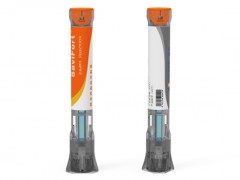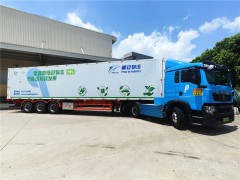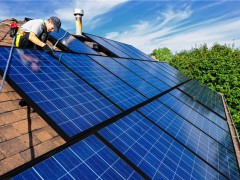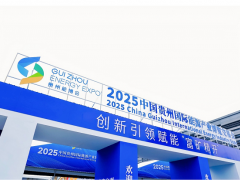據世界天然氣網2月21日消息 根據殼牌公司的最新年度液化天然氣展望,在供應緊張和價格波動的情況下,全球液化天然氣貿易在2021年間增長了6%,至3.8億噸。
殼牌表示,這些條件(不斷上升的需求和供應限制)導致液化天然氣價格全年保持波動。2021年10月價格達到創紀錄水平。此時,儲存量創歷史新低的歐洲正努力確保冬季液化天然氣貨物的安全。
這種波動性突出表明,需要采取更具戰略性的方法來確保可靠和靈活的供應。殼牌表示,液化天然氣供需缺口將在20年代中期出現,這引起了人們對增加供應和滿足不斷增長的液化天然氣需求的關注,尤其是在亞洲。
殼牌公司Wael Sawan表示:“隨著各國發展低碳能源系統,追求凈零排放目標,專注于更清潔的天然氣形式和脫碳措施,將有助于液化天然氣在未來幾十年保持可靠和靈活的能源來源。”
盡管存在阻礙,但2021年液化天然氣出口仍出現增長。美國引領出口增長,同比增長2400萬噸。此外,預計2022年美國將成為世界上最大的液化天然氣出口國。
總體而言,到2040年,全球液化天然氣需求預計將超過每年7億噸。2021年的需求增長了90%,亞洲將消費這一增長的大部分。
液化天然氣在進一步利用可再生能源方面發揮著關鍵作用。例如,巴西在2021年間進口了三倍的液化天然氣,因為持續干旱的天氣導致了發電量下降。
2021年,隨著液化天然氣價值鏈的脫碳,在圍繞投資解決排放問題的幾次公告中,勢頭開始回升。
吳恒磊 編譯自 世界天然氣
原文如下:
Shell: Global LNG trade increased by 6% in 2021 amid high prices
According to the latest annual LNG Outlook from Shell, the global trade in LNG increased 6 per cent to 380 million tonnes during 2021 amid supply constraints and volatile prices.
Shell says that these conditions (rising demand and supply constraints) caused LNG prices to remain volatile throughout the year. Prices reached record levels in October 2021. This is when Europe, with record low storage levels, struggled to secure LNG cargoes for the winter.
The volatility highlighted the need for a more strategic approach to secure reliable and flexible supply. Shell says an LNG supply-demand gap is to emerge in the mid-2020s. This calls to attention the need for more investment to increase supply and meet rising LNG demand, especially in Asia.
“As countries develop lower-carbon energy systems and pursue net-zero emissions goals, focusing on cleaner forms of gas and decarbonisation measures will help LNG to remain a reliable and flexible energy source for decades to come,” said Wael Sawan from Shell.
LNG exports grew in 2021 despite the troubles. The U.S. led export growth with a year-on-year increase of 24 million tonnes. Also, it is expected to become the world’s largest LNG exporter in 2022.
Overall, global LNG demand is expected to cross 700 million tonnes a year by 2040; a 90 per cent increase on 2021 demand. Asia is to consume the majority of this growth.
LNG has a key role to play to further the use of renewable energy. For example, Brazil tripled imports of LNG during 2021 as persistent dry weather led to weaker hydropower generation.
In 2021, momentum picked up for decarbonising the LNG value chain with several announcements around investments to address emissions.
免責聲明:本網轉載自其它媒體的文章及圖片,目的在于弘揚石化精神,傳遞更多石化信息,宣傳國家石化產業政策,展示國家石化產業形象,參與國際石化產業輿論競爭,提高國際石化產業話語權,并不代表本網贊同其觀點和對其真實性負責,在此我們謹向原作者和原媒體致以崇高敬意。如果您認為本站文章及圖片侵犯了您的版權,請與我們聯系,我們將第一時間刪除。







